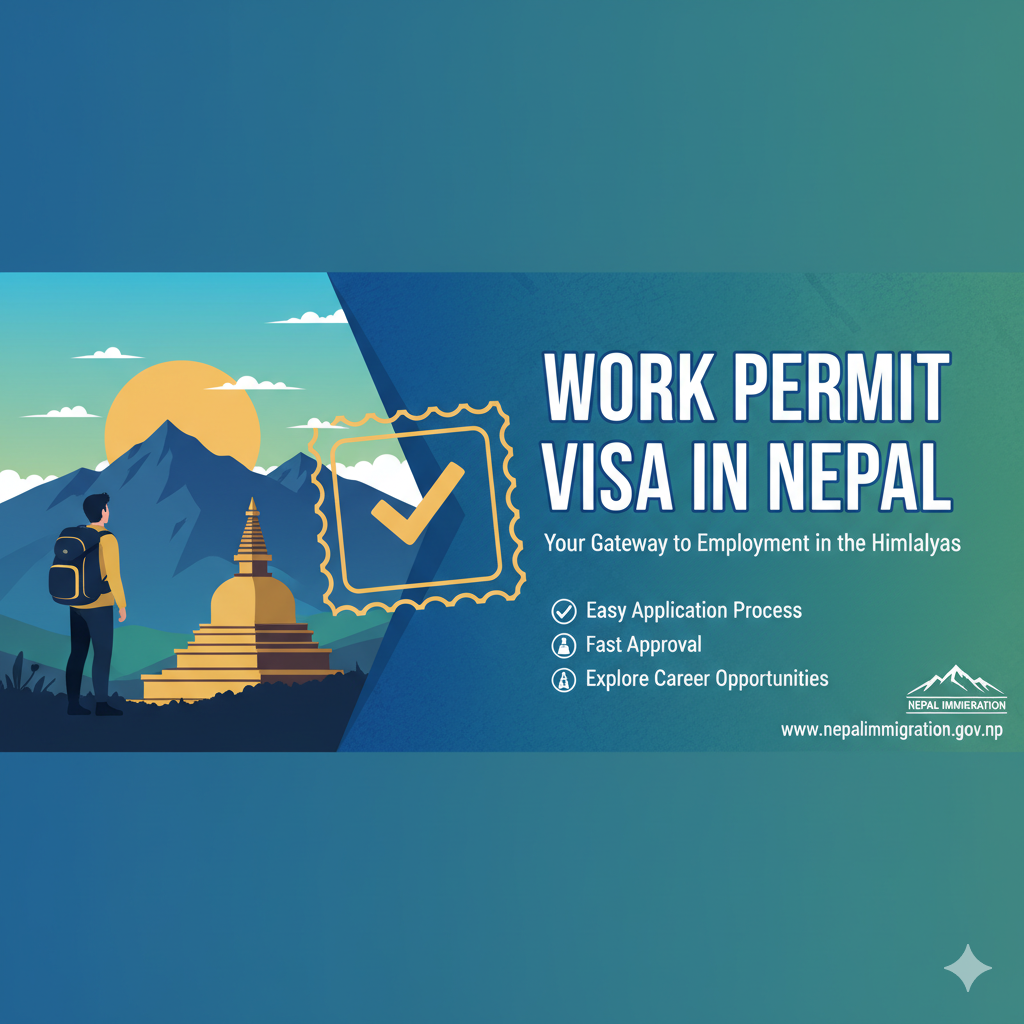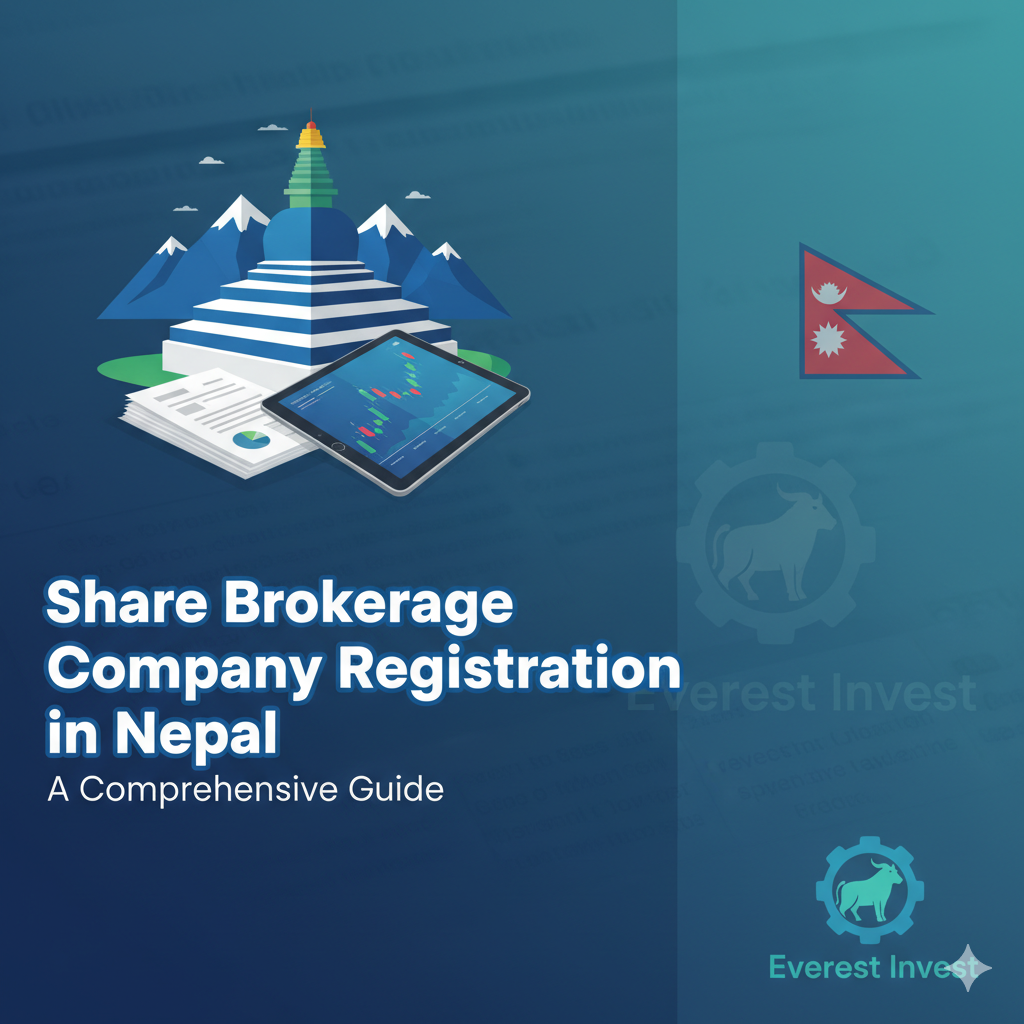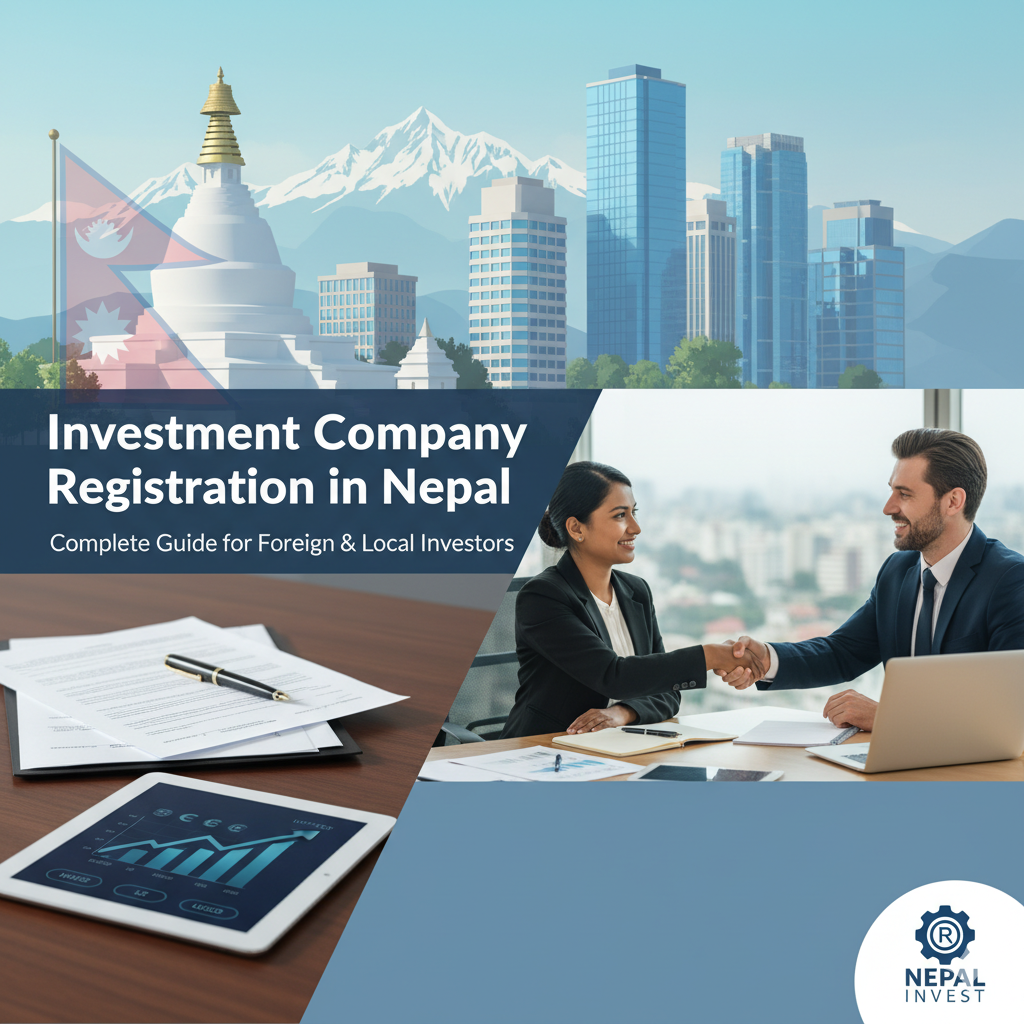
Introduction
Navigating the work permit visa Nepal process can be complex, but this comprehensive guide simplifies the journey for all stakeholders involved. Whether you’re a foreign professional seeking employment opportunities, a Nepali company looking to hire international talent, or an immigration consultant advising clients, this resource provides everything you need to know about obtaining legal work authorization in Nepal. We’ll walk you through the entire Nepal work visa process, from eligibility requirements to document preparation and application submission, ensuring you have the knowledge to navigate this bureaucratic process with confidence.
Who Needs This Guide?
This guide is designed for three distinct audiences:
Foreign Professionals:
If you’re planning to work in Nepal, this guide will help you understand your responsibilities, required documents, and the step-by-step process to obtain your work permit visa Nepal.
Nepali Employers:
For companies hiring international employees, this resource outlines your sponsorship obligations, documentation requirements, and how to facilitate a smooth work permit application for your foreign staff.
Immigration Consultants:
As an advisor to clients seeking Nepal employment visa, this comprehensive reference material will equip you with detailed information to guide your clients through the process effectively.
Overview of Nepal’s Work Permit System
Nepal’s work permit system is regulated by the Department of Labor and Occupational Safety (DoL) under the Ministry of Labor, Employment and Social Security. The legal framework primarily operates under the Foreign Employment Act and Labor Act, which establish the requirements for foreign nationals seeking employment in Nepal.
The work permit visa Nepal system is designed to balance the need for specialized foreign expertise with the protection of domestic employment opportunities. Generally, work permits are granted when a foreign national possesses skills, qualifications, or expertise not readily available in the local workforce.
For more information on Nepal’s immigration policies, visit our Nepal Immigration Overview page.
Detailed Eligibility Criteria for Foreign Workers
Understanding the eligibility requirements is crucial for a successful work permit visa Nepal application. The criteria vary slightly depending on the type of work and sector, but generally include:
Basic Eligibility Requirements
- Valid Passport: Must be valid for at least six months beyond the intended period of stay
- Job Offer: Must have a confirmed employment offer from a registered Nepali company
- Qualifications: Must possess relevant qualifications and experience for the position
- Health Clearance: Must pass a medical examination from an approved institution
- Clean Record: Must have no criminal record in home country or previous countries of residence
Sector-Specific Requirements
For Professionals:
- Minimum educational qualifications (usually Bachelor’s degree or equivalent)
- Relevant work experience (typically 2-5 years depending on position)
- Professional certifications if applicable to the field
For Technical Workers:
- Technical certifications or diplomas
- Demonstrated practical experience
- References from previous employers
For Managers and Executives:
- Higher educational qualifications (Master’s degree or equivalent preferred)
- Significant management experience (usually 5+ years)
- Proof of decision-making authority in the hiring organization
For Employers: You must be able to demonstrate that the position cannot be filled by a qualified Nepali candidate. This may require advertising the position locally and documenting the recruitment process.
For Foreign Professionals: Highlight your unique skills and qualifications that make you valuable to the Nepali workforce. Emphasize specialized knowledge that may be scarce in Nepal.
For Immigration Consultants: Carefully assess your clients’ qualifications against the specific requirements for their intended position to avoid unnecessary delays or rejections.
Types of Work Permits Available in Nepal
Nepal offers several types of work permits depending on the nature and duration of employment:
Regular Work Permit
The most common type, issued for:
- Professionals and skilled workers
- Valid for one year, renewable annually
- Requires employment contract with Nepali company
Volunteer Work Permit
For individuals working with NGOs or charitable organizations:
- Typically valid for the duration of the volunteer project
- May have different documentation requirements
- Usually requires proof of volunteer status and organization registration
Project-Based Work Permit
For specific projects with defined timelines:
- Valid for the duration of the project (up to 5 years)
- Requires project documentation and approval
- Common in construction, infrastructure, and development sectors
Dependent Work Permit
For spouses of individuals with valid work permits:
- Requires proof of relationship
- May have restrictions on type of employment
- Usually tied to the primary permit holder’s validity
For detailed information on each permit type, see our [INTERNAL LINK] Work Permit Types Comparison page.
Comprehensive List of Required Documents with Explanations
Proper documentation is critical for a successful work permit visa Nepal application. Below is a detailed checklist with explanations for each document’s purpose:
Personal Documents
- Valid Passport
- Purpose: Primary identification document
- Requirement: Must be valid for at least six months beyond intended stay
- Note: Include copies of all relevant pages, not just the information page
- Passport-Sized Photographs
- Purpose: Visual identification for official documents
- Requirement: Recent photos (typically 2-3) with white background
- Note: Specifications may vary, so confirm current requirements before submission
- Completed Application Form
- Purpose: Official record of your application details
- Requirement: Must be filled accurately and completely
- Note: Any discrepancies may cause delays or rejection
Professional Documents
- Employment Contract
- Purpose: Proof of job offer and terms of employment
- Requirement: Signed by both employer and employee
- Note: Must include position, salary, duration, and job description
- Professional Qualifications
- Purpose: Verification of your credentials for the position
- Requirement: Degrees, certificates, and professional licenses
- Note: May require verification by relevant Nepali authorities
- Experience Certificates
- Purpose: Documentation of relevant work history
- Requirement: Letters from previous employers detailing positions and tenure
- Note: Should be on company letterhead with contact information for verification
Health and Security Documents
- Medical Certificate
- Purpose: Confirmation of good health and absence of contagious diseases
- Requirement: From an approved medical institution
- Note: Must be recent (typically within 3 months of application)
- Police Clearance Certificate
- Purpose: Verification of no criminal record
- Requirement: From your home country and countries of recent residence
- Note: May need to be authenticated or apostilled
Employer Documents
- Company Registration Certificate
- Purpose: Proof that the employing company is legally registered in Nepal
- Requirement: Current registration document
- Note: Must be provided by the employer
- Tax Clearance Certificate
- Purpose: Confirmation that the employer is compliant with tax regulations
- Requirement: Recent tax clearance document
- Note: Demonstrates company’s good standing with authorities
- Justification for Foreign Employment
- Purpose: Explanation of why a foreign national is needed for the position
- Requirement: Detailed justification from the employer
- Note: Should highlight skills not available in the local workforce
For Employers: Ensure all company documents are current and properly formatted. Any inconsistencies in your documentation can reflect poorly on your employee’s application.
For Foreign Professionals: Have all personal documents prepared well in advance. Some documents, like police clearance certificates, may take time to obtain.
For Immigration Consultants: Create a document tracking system for your clients to ensure all requirements are met and documents are current.
Step-by-Step Application Process with Actionable Instructions
The Nepal work visa process involves multiple stages and coordination between the applicant, employer, and government authorities. Follow these detailed steps for a successful application:
Stage 1: Pre-Application Preparation
- Secure Employment Offer
- Obtain a formal job offer from a registered Nepali company
- Ensure the contract includes all necessary details (position, salary, duration)
- Have the contract reviewed by legal counsel if possible
- Document Collection and Verification
- Gather all personal documents listed in the previous section
- Have documents translated into English or Nepali if necessary
- Verify that all documents meet the specific requirements
- Make both original and multiple copies of each document
- Employer Preparations
- Employer must obtain tax clearance certificate
- Prepare justification for hiring foreign national
- Register with the Department of Labor if not already done
For Employers: Begin your preparations as soon as you decide to hire a foreign national. Some company documents may take time to obtain.
Stage 2: Initial Application Submission
- Employer Application to Department of Labor
- Employer submits preliminary application to DoL
- Includes company documents, job offer, and justification
- Processing time: Typically 7-15 working days
- Obtain Preliminary Approval
- DoL reviews the application and may request additional information
- Once approved, DoL issues a preliminary approval letter
- This letter is essential for the next steps
- Foreign Professional Application
- Submit personal application to Nepali embassy/consulate in home country
- Include preliminary approval letter from DoL
- Pay application fees (amount varies by nationality)
For Foreign Professionals: Wait to apply at the embassy until you have the preliminary approval from the DoL. Applying without this document will result in rejection.
Stage 3: Arrival in Nepal and Final Processing
- Entry Visa Application
- Apply for entry visa at Nepali embassy/consulate
- This is typically a tourist visa that allows entry for work permit processing
- Duration: Usually 30-90 days, sufficient for work permit processing
- Travel to Nepal
- Enter Nepal within the validity period of your entry visa
- Register with the immigration department upon arrival
- Complete any additional medical examinations if required
- Final Work Permit Application
- Submit complete application to DoL office in Kathmandu
- Include all original documents and copies
- Pay work permit fees (structure varies by position and duration)
- Biometric Data Collection
- Provide fingerprints and photographs
- Complete at designated immigration office
- Required for final permit issuance
- Work Permit Issuance
- DoL processes the final application
- Work permit is typically issued within 15-30 working days
- Receive work permit card and official approval letter
- Residence Visa Application
- Apply for residence visa based on work permit approval
- Submit to Department of Immigration
- Processing time: Typically 5-10 working days
For Immigration Consultants: Create a detailed timeline for your clients and set reminders for each deadline. The process involves multiple government agencies with different processing times.
Stage 4: Post-Approval Requirements
- Registration with Local Authorities
- Register with the local police station within 7 days of receiving residence visa
- Complete any additional sector-specific registrations if required
- Opening Bank Account
- Open a Nepali bank account for salary payments
- May require work permit and other documentation
- Tax Registration
- Obtain personal tax identification number
- Register with the Inland Revenue Department
For a visual representation of this process, see our [INTERNAL LINK] Work Permit Application Flowchart.
Processing Times with Realistic Expectations and Timelines
Understanding the processing timeline for your work permit visa Nepal application helps with planning and managing expectations. Below is a realistic breakdown of expected durations:
Document Preparation Phase: 2-4 weeks
- Personal document collection: 1-2 weeks
- Document verification and translation: 1 week
- Employer document preparation: 1-2 weeks
Initial Application Phase: 3-5 weeks
- DoL preliminary approval: 1-3 weeks
- Embassy application processing: 1-2 weeks
Final Processing Phase: 4-6 weeks
- Work permit final approval: 2-4 weeks
- Residence visa processing: 1-2 weeks
Total Estimated Timeline: 9-15 weeks
Factors that may affect processing times:
- Completeness of Application: Incomplete applications face significant delays
- Peak Seasons: Processing may be slower during government holidays or peak application periods
- Nationality: Some nationalities may face additional security checks
- Sector: Certain industries (like NGOs or media) may require additional approvals
- Changes in Policy: New regulations or political changes can impact processing times
For Employers: Factor these timelines into your hiring plans. Start the process at least 3-4 months before you need the employee to begin work.
For Foreign Professionals: Do not resign from your current position or make irreversible arrangements until you have received final approval.
For Immigration Consultants: Set realistic expectations with your clients and build buffer time into your planning to account for unexpected delays.
Renewal Procedures
Work permit visa Nepal is typically issued for one year and must be renewed annually. The renewal process is generally simpler than the initial application but still requires careful attention to detail.
Renewal Timeline
- Initiate Process: Begin 45-60 days before current permit expires
- Processing Time: Typically 2-4 weeks
- Required Documents: Similar to initial application but with some variations
Renewal Process Steps
- Employer Recommendation
- Employer submits recommendation letter to DoL
- Include performance evaluation and justification for continued employment
- Document Update
- Update any expired personal documents
- Provide current employment contract
- Submit latest tax clearance certificates
- Application Submission
- Submit renewal application to DoL
- Pay renewal fees
- Provide any additional documentation requested
- Final Approval
- Wait for processing and approval
- Collect renewed work permit
- Update residence visa accordingly
For Employers: Track expiration dates of all foreign employees’ permits and initiate renewal processes well in advance to avoid disruptions.
For Foreign Professionals: Keep copies of all renewal documents and maintain a file of your employment history in Nepal for future renewals.
Common Mistakes and How to Avoid Them
Even with careful preparation, applicants often encounter issues that can delay or jeopardize their work permit visa Nepal application. Here are the most common mistakes and how to avoid them:
Documentation Errors
- Incomplete Applications
- Mistake: Submitting applications with missing documents or information
- Solution: Create a comprehensive checklist and verify each item before submission
- Impact: Can cause delays of 2-4 weeks or application rejection
- Expired Documents
- Mistake: Submitting documents that have expired or will expire during processing
- Solution: Check all document expiration dates and renew if necessary
- Impact: Will require resubmission and cause significant delays
- Inconsistent Information
- Mistake: Providing conflicting information across different documents
- Solution: Review all documents for consistency in names, dates, and details
- Impact: Raises credibility concerns and may lead to rejection
Process-Related Mistakes
- Incorrect Application Sequence
- Mistake: Applying to the embassy before obtaining DoL preliminary approval
- Solution: Follow the step-by-step process in the correct order
- Impact: Will result in automatic rejection and wasted fees
- Missing Deadlines
- Mistake: Failing to respond to requests for additional information within specified timeframes
- Solution: Monitor application status regularly and respond promptly
- Impact: Can cause application abandonment and require starting over
- Inadequate Justification
- Mistake: Employer providing insufficient justification for hiring foreign national
- Solution: Clearly demonstrate how the employee’s skills benefit the company and Nepal
- Impact: May result in rejection based on priority for local employment
For Immigration Consultants: Implement a quality control system to review all applications before submission, checking for these common mistakes.
Recent Policy Changes or Updates
As of 2023, Nepal has implemented several changes to its work permit visa Nepal process that applicants should be aware of:
Digital Application System
- New Feature: Introduction of online application portal for initial submissions
- Impact: Reduces paperwork and processing time for preliminary approvals
- Implementation: Currently in pilot phase for certain sectors and nationalities
Priority Sectors
- New Policy: Expedited processing for certain priority sectors (IT, hydroelectric, tourism)
- Impact: Reduced processing time by up to 30% for qualified applicants
- Requirement: Must demonstrate contribution to Nepal’s development priorities
Enhanced Security Checks
- New Requirement: Additional background verification for certain nationalities
- Impact: May extend processing time by 1-2 weeks for affected applicants
- Scope: Primarily affects applicants from countries identified as higher security risks
Changes in Fee Structure
- New Policy: Revised fee schedule based on skill level and salary
- Impact: Higher fees for executive positions and specialized professionals
- Implementation: Effective from fiscal year 2023/2024
For the most current policy updates, visit our [INTERNAL LINK] Nepal Immigration Policy Updates page.
Employer Responsibilities and Sponsorship Requirements
Nepali companies hiring foreign nationals have specific obligations and responsibilities throughout the work permit visa Nepal process. Understanding these requirements is essential for both compliance and successful employee integration.
Primary Employer Responsibilities
- Sponsorship Obligations
- Act as official sponsor for the foreign employee
- Provide all necessary company documentation
- Submit employer portion of the application
- Justification Requirements
- Demonstrate that the position cannot be filled by a qualified Nepali
- Provide evidence of recruitment efforts in the local market
- Explain the unique skills the foreign employee brings
- Financial Responsibilities
- Cover all application and processing fees
- Provide salary as specified in the employment contract
- Arrange for necessary benefits as per Nepali labor laws
- Compliance Obligations
- Ensure employee works only in the approved position and company
- Monitor permit expiration dates and initiate renewal process
- Report any changes in employment status to authorities
Documentation Requirements
- Company Registration Documents
- Current business registration certificate
- Tax clearance certificate
- Company profile and organizational structure
- Financial Documents
- Recent financial statements
- Proof of sufficient funds to cover employee salary
- Bank reference letters
- Employment Documentation
- Detailed job description
- Employment contract meeting all legal requirements
- Organizational chart showing position within company structure
Post-Hiring Responsibilities
- Onboarding Requirements
- Register employee with all relevant authorities
- Provide orientation on Nepali laws and customs
- Ensure proper workplace setup and safety measures
- Ongoing Compliance
- Submit regular reports as required by DoL
- Maintain proper employment records
- Facilitate any required inspections or audits
- Termination Procedures
- Follow legal procedures for contract termination
- Report termination to immigration authorities
- Arrange for proper repatriation if necessary
For Employers: Consider designating an HR representative to specialize in foreign employee management to ensure compliance with all requirements.
For Immigration Consultants: Develop a checklist of employer responsibilities to help your corporate clients maintain compliance throughout the employment period.
Frequently Asked Questions
Q1: How long does it take to get a work permit visa Nepal?
A: The complete process typically takes 9-15 weeks from start to finish. This includes document preparation (2-4 weeks), initial application (3-5 weeks), and final processing (4-6 weeks). Processing times can vary based on application completeness, nationality, and sector.
Q2: Can I change employers while on a work permit in Nepal?
A: No, work permits in Nepal are employer-specific. If you wish to change employers, you must obtain a new work permit. The new employer must initiate the application process, and you cannot begin working for the new employer until the new permit is approved.
Q3: What are the minimum salary requirements for foreign workers in Nepal?
A: Nepal does not have official minimum salary requirements for foreign workers, but the salary must be commensurate with the position and qualifications. Unreasonably low salaries may raise questions during the application process.
Q4: Can my family accompany me to Nepal on my work permit?
A: Yes, your spouse and dependent children can accompany you to Nepal. They will need to apply for dependent visas, which require proof of relationship and your valid work permit. Dependent family members typically cannot work in Nepal unless they obtain their own work permits.
Q5: What happens if my work permit application is rejected?
A: If your application is rejected, you will receive notification explaining the reasons for rejection. Depending on the grounds for rejection, you may be able to address the issues and reapply. Common reasons for rejection include incomplete applications, insufficient justification for foreign employment, or discrepancies in documentation.
Q6: Do I need to know Nepali language to get a work permit?
A: Nepali language proficiency is not a formal requirement for most work permit categories. However, for certain positions that involve interaction with the local public, basic Nepali language skills may be advantageous and could strengthen your application.
Q7: Can I start a business in Nepal while on a work permit?
A: No, a work permit only authorizes you to work for your sponsoring employer. If you wish to start a business in Nepal, you would need to obtain appropriate business or investor visas, which have different requirements and application processes.
Conclusion
The work permit visa Nepal process requires careful planning, attention to detail, and patience from all parties involved. By following this comprehensive guide, foreign professionals can approach their applications with confidence, Nepali employers can fulfill their obligations effectively, and immigration consultants can provide accurate guidance to their clients.
For Foreign Professionals:
Take the time to thoroughly prepare your documents and understand each step of the process. Consider engaging a local immigration consultant to navigate the complexities of the system. Remember that obtaining your work permit is just the beginning—familiarize yourself with Nepali culture and workplace norms to ensure a successful professional experience in Nepal.
For Nepali Employers:
View the work permit process as an investment in bringing valuable skills to your organization. Establish clear internal procedures for managing foreign employee applications and compliance. Consider developing a comprehensive onboarding program that helps your international staff integrate smoothly into your workplace and Nepali society.
For Immigration Consultants:
Stay updated on the latest policy changes and processing requirements. Develop standardized checklists and timelines to improve efficiency for your clients. Consider specializing in specific sectors or nationalities to build expertise in those areas.
For additional resources and personalized guidance, explore our [INTERNAL LINK] Nepal Immigration Services page or contact our team of experts who can assist with your specific needs.



